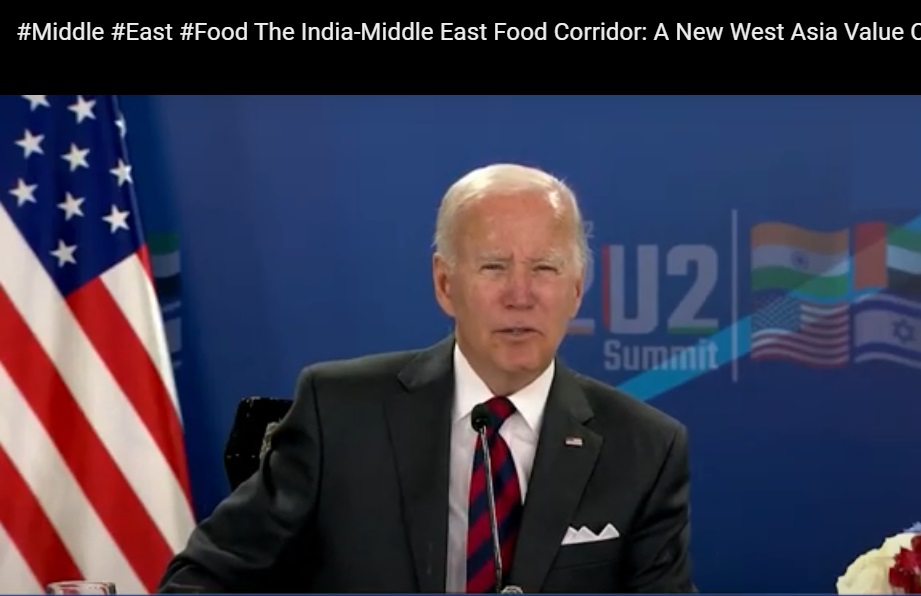The India-Middle East food corridor is an initiative that promises to transform and revolutionize the diplomatic, trade, and economic relations between India and the Middle East.
With countries around the world fighting food shortages, India, Israel, and the UAE are embarking on a new journey to ensure food security for its citizens. The India-Middle East food corridor is a revolutionary initiative that promises to turn these three countries into exporting powerhouses.
The backbone of the initiative is its reliance on climate-smart and innovative technologies that are also positively impacting the southern part of Eurasia.
For the US, the development of the food corridor can work as a counterweight to China’s growing influence in the region. The connectivity to the UAE’s coast via Israel’s Mediterranean through India’s Arabian Sea will negatively impact China’s growing influence over the Indo-Pacific region.
An article published on the Middle East Institute mentions the following:
“For Washington, the development of an arc of commercial connectivity from India’s Arabian Sea coast to Israel’s Mediterranean coast with the UAE as its hub provides a geopolitical counterweight to China’s expanding commercial presence across the Indo-Pacific into the Middle East. At the July 14, 2022, “I2U2” summit, the first convening of the heads of government of India, Israel, the UAE, and the United States, the food corridor featured prominently, leading to the erroneous impression that the corridor is a geo-economic contrivance of a U.S.-sponsored “Middle East Quad.” The India-Middle East Food Corridor is neither anti-China nor a new initiative. In fact, the corridor had been evolving without any U.S. involvement at all.”
While the US is interested in the progress India is making with Israel and the UAE through its food corridor, the idea has been blooming for some time without the involvement of the US. However, the involvement of the US in the initiative is important for the UAE. The UAE and other Middle Eastern countries would want the US to be involved in the region to counter the growing influence of China in the region.
For Washington, the involvement of New Delhi in the Middle East is more favorable than Beijing making inroads in the region.
An article published on Invest India mentions the following:
“On July 14, 2022, the inaugural ‘I2U2’ summit witnessed the coming together of the heads of government from India, Israel, the UAE and the US. This historic event highlighted the concept of food corridor, indicating the formation of a US-sponsored ‘Middle-East squad.’ During the summit, the UAE made a significant announcement of $ 2 Bn investment towards the construction of food parks in India that will leverage advanced agritech, clean tech, and renewable energy technologies from Israel and the US.”
In the next episode, we will explore the economic and geopolitical significance of the food corridor and briefly touch on the I2U2.
How did you find this information? Please mention this in the comments section. We would also like to know the kind of content you want to watch, and we will try to create it for you. For more news and updates, follow Airr News.
#MiddleEast #FoodCorridor #I2C2 #IndiaMiddleEastFoodCorridor #FoodSecurity #ChineseInvolvementInMiddleEast #FoodShortage #DiplomaticRelations #MinilateralRalation #JoeBiden #PMNarendraModi #ArabianSea #WestAsia #TradeAndCommerce #AirrNews #NewsInEnglish

